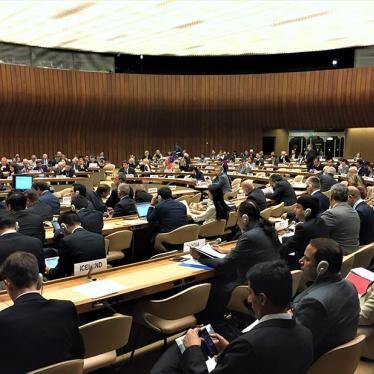An open letter issued Monday from Tesla head Elon Musk and 115 other founders of artificial intelligence and robotic companies called for diplomatic action to prevent the development and use of fully autonomous weapons, otherwise known as killer robots.
There is ample reason for the dismay expressed by these technology leaders about the cancellation of an important international meeting on fully autonomous weapons. Their warnings of the prospect of an unchecked arms race to develop these weapons are warranted. Stronger and swifter action are needed, not dithering.
A few commentators have cast doubt on the ability of countries to agree on regulations or a ban on these future weapons that, once activated, would select and fire on targets without further human intervention. Others have questioned the viability of such a treaty. Yet none are making a serious case for the unchecked development of weapons systems that lack meaningful human control.
The last international meeting on lethal autonomous weapons systems took place more than a year ago, in April 2016. Because a handful of countries, most notably Brazil, have not paid their contributions for the Convention on Conventional Weapons (CCW), the next meeting to discuss this topic will not be held until November, and there remain questions about whether that meeting will proceed as planned.
The faltering diplomacy makes it even more necessary for countries to get serious about developing national policy and legislation that preemptively bans fully autonomous weapons. With the support of key United Nations agencies, the International Committee of the Red Cross, and Campaign to Stop Killer Robots, they should begin negotiations next year on a new treaty on fully autonomous weapons.
A long, drawn-out diplomatic process that achieves a weak or no result should be avoided. If the Convention on Conventional Weapons continues its inaction this year on killer robots, then countries serious about protecting civilians should look at other routes to conclude a ban in another forum. As this latest call for action shows, it’s time to move from talking about this challenge to resolving it, before it’s too late.











